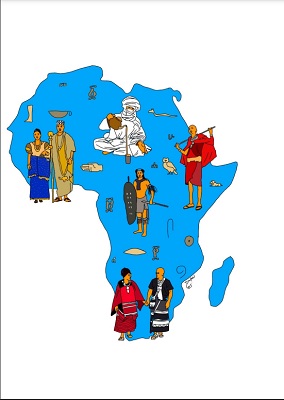
Africa has faced numerous challenges throughout its history, from the scars of colonial rule to ongoing conflicts and political instability. Despite the African Union’s (AU) noble objectives promoting unity, safeguarding sovereignty, fostering political and economic development, and protecting human rights—the organization struggles to transform these goals into tangible outcomes. As a result, the union’s efforts remain under significant scrutiny.
According to some research, the legacy of colonization has left many Africans questioning the effectiveness of their governing bodies, particularly the AU. Additionally, the influence of neo-colonialism continues to undermine the union’s efforts toward self-reliance and sustainable development across the continent.
While the AU regularly assembles to discuss various matters affecting African nations, critics argue that these meetings often amount to little more than symbolic gestures. Studies indicate that despite numerous discussions and resolutions, significant change remains elusive. Many view African leaders’ meetings as mere “paper tigers,” lacking real impact.
Experts contend that although African leaders deliberate on key continental issues, their decisions frequently lack implementation and follow-through. Among the criticisms leveled against the AU is its failure to be truly inclusive, as it primarily serves the interests of political leaders rather than the broader population. For instance, the union has struggled to foster diverse citizen engagement in its operations and decision-making processes.
As Africa continues to navigate a complex landscape of economic disparities, human rights violations, and security threats, the need for a more effective and people-centered union has never been more urgent.
Africans are eager to participate in the AU’s discussions on continental interests—ensuring peace, alleviating poverty, and promoting sustainable development. However, many argue that their voices are not genuinely represented within the union. From its working languages to the limited platforms available for citizen involvement in continental matters, critics rebuke the AU for failing to be a true “union of Africans.” Many attribute this shortcoming to the union’s financial and political dependence on external entities.
Africa is rich in natural resources, yet many nations struggle with persistent poverty. Despite its abundant minerals, oil, and agricultural potential, mismanagement, corruption, and inadequate infrastructure continue to hinder economic development. As a result, millions remain without basic necessities, limiting the continent’s growth prospects.
Furthermore, observers argue that these economic struggles are exacerbated by the AU’s reliance on external financial and political support. This dependence not only undermines the union’s ability to function as a truly African institution but also raises serious concerns about its autonomy and effectiveness.
For years, the AU has claimed to prioritize the interests of African people. Yet critics argue that, even after six decades, the union has failed to become a true citizens’ union.
Like other international and continental unions, African citizens want to actively participate in AU policymaking and political discourse. They seek to foster strong democratic leadership and sustainable economic development across the continent. Their desire for transparency, accountability, and civic engagement reflects a commitment to shaping policies that directly impact their lives. However, many argue that the AU has no platform for African citizens to contribute meaningfully to policymaking and discussions relevant to the continent.
Dawit Mezgebe, a PhD candidate in African and Asian Studies at Addis Ababa University, asserts that the AU is too weak to resolve the disconnect between its objectives and the interests of African citizens. He highlights how, from January 2018 to April 2019, the European Union (EU) Commission conducted over 1,100 Citizens’ Dialogues. These sessions allowed citizens to engage directly with EU Commissioners, fostering inclusivity by randomly selecting participants from various EU member states.
European citizens also have the opportunity to influence EU policies by proposing new laws, collecting one million signatures, petitioning the European Parliament, and participating in public consultations conducted by the European Commission. Moreover, they indirectly shape EU policymaking by voting in European elections, contacting Members of the European Parliament (MEPs), and engaging with national parliaments.
Despite the AU’s efforts to establish human rights frameworks, conflict resolution mechanisms, and platforms for citizen engagement, Dawit argues that these initiatives are often hindered by financial constraints and reliance on external funding. While the union’s policies may be well-intentioned, without sustainable financing and self-reliance, they risk becoming symbolic rather than effective.
Dr. Worku Yakob, General Director of African Change for Interaction and Think Tank and a researcher in African and Foreign Affairs Policy, points out that while citizens have opportunities to engage with the AU through various institutions, a troubling disconnect remains between their concerns and the union’s actions. He explains that African citizens consistently raise critical issues concerning peace, economic stability, and democratic governance, yet these concerns often go unaddressed. This gap between dialogue and action raises doubts about the AU’s commitment to its foundational goals.
Deyamo Dale, an expert in Political Science and International Relations (PSIR) and Director of Peace building at Global Peace Bank, emphasizes that the AU’s failure to provide tangible responses to citizen inquiries undermines the notion that it is an inclusive and representative institution. He argues that the AU’s bureaucratic processes drown out the voices of ordinary Africans, preventing meaningful civic engagement.
In contrast, European citizens are encouraged to engage in EU-related matters by joining civil society organizations, staying informed through news outlets and social media, and fostering community discussions.
Deyamo further emphasizes that despite the existence of various AU institutions and civil organizations, they have yet to become vibrant mechanisms that truly address citizens’ needs. Due to this, Worku Yakob argues that some African leaders prioritize political affiliations over continental unity, underscoring the need for a paradigm shift within the AU.
For the union to regain its credibility and fulfill its mission, it must commit to collective African interests rather than individual or biased agendas. Experts stress that the AU must address its financial dependencies, enhance leadership capacity, and ensure that African citizens’ voices are not only heard but acted upon. Additionally, the AU must foster genuine collaboration among African nations to fulfill its promises and strengthen its role as a true representative of African interests.
BY FIKADU BELAY
THE ETHIOPIAN HERALD THURSDAY 27 FEBRUARY 2025



